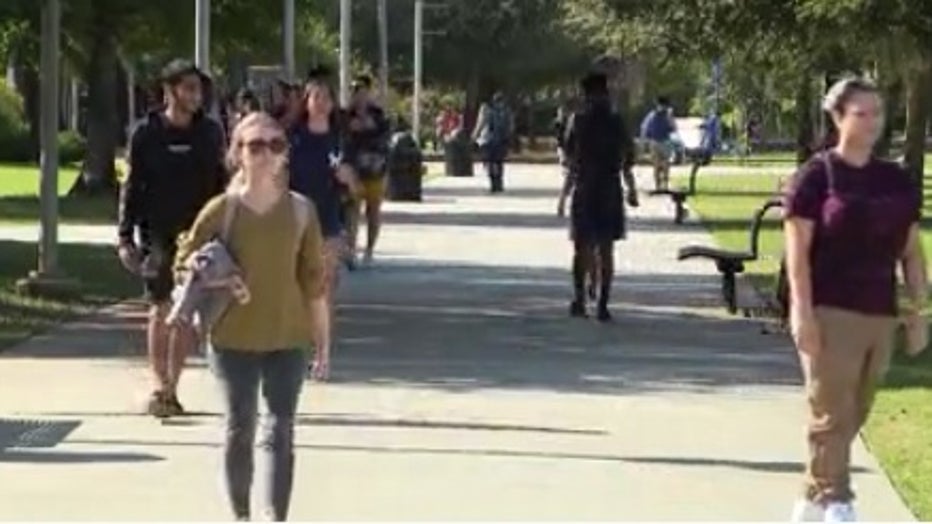Students working more to cover rising cost of college

Paying for college
The cost of college is one of the biggest financial stresses on families and students. It can mean a lot of folks going into debt to pay for it. But, that’s not all you can do.
ORLANDO, Fla. - The cost of college is one of the biggest financial stresses on families and students. It can mean a lot of folks going into debt to pay for it. But, that’s not all you can do.
On many college campuses like UCF, students are just starting their journey to become independent adults and making some of the biggest financial decisions of their lives, like just how to pay for rising tuition costs without going into major debt.
“During my freshman year, we were very hesitant,” UCF senior Naseeka Dixon said. “We were like, 'We’re not gonna take out any loans until senior year or til graduate school or law school.'”

For many, it means balancing a job and school.
According to UCF, nearly 50 percent of their students work at least 20 hours a week.
“We work about 20 to 22 depending on the work,” Dixon said.
Dixon works part-time at the Knights Helping Knights Pantry on campus.
Everything in there is free to take.
“Perishable items, our produce, frozen goods, clothing, professional clothing,” Dixon said. “I think this is a place where students can come in and feel like someone is supporting them.”
It’s just another way some 300 students per day get the help they need.
Dixon has managed to afford college by working, winning scholarships and receiving financial aid, a feat she didn’t think would be possible since she was raised by a single mother.
“I’m looking forward to graduation and actually doing more nonprofit work,” Dixon said. “Probably even start applying to law school.”
UCF financial advisors said more students are waiting to take out loans, but the ones who do are keeping their balance well below the state and national average.
“Our students borrow slightly over $21,000 upon graduation,” Dr. Karemah Campbell Manselle said. “The national average is $31,000.”
Campbell Manselle said in her nearly 20 years in financial aid, students are more hesitant to borrow than ever.
“We’re a little bit more cautious, but we are mindful that loans can help you get to the next step in life,” Dixon said.
It’s a decision and a balance that each student has to make for themselves.

